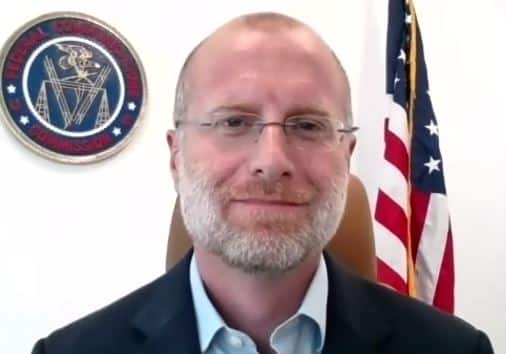Federal, State Laws Should Bolster Social Media Accountability, Carr says

Reforming Section 230 of the 1996 Communications Decency Act is not enough to curb the power of social media platforms, and should be bolstered by federal and state laws to enforce transparency, accountability and anti-discrimination, FCC Commissioner Brendan Carr said.
Despite the “tremendous benefits” the tech industry has provided society, Carr told attendees at a Federal Communications Bar Association event last week he has never seen such a wide gap between corporate power and accountability.
Social media platforms are treated as “interactive computer services” under Section 230 of the CDA, a designation that shields them from liability for third-party content published through their services.
The same designation gives them a free hand to moderate any content they deem violates their standards under their rights as private companies.
Carr said there are a number of laws that already apply to the cable and telecom industry that are examples of how to impose “affirmative” anti-discrimination requirements on the big technology and social media platforms.
For example, he said, the cable television industry has “must-carry” obligations that require operators to carry the content of local broadcast stations on their networks.
These obligations were put in place to protect commercial and noncommercial broadcasters in local markets, who compete against stations owned and affiliated with the national cable operators.
Similarly, Carr said, mobile service providers are required to carry data from other entities when their wireless customers “roam” outside their given networks.
Carr’s comments came a day after former President Donald Trump filed lawsuits against Facebook, Twitter and YouTube over their decisions to remove him from their platforms.
The former president said he was wrongfully censored, along with others, and asked the court to find Section 230 unconstitutional and that the platforms are not private companies but “state actors.”
They also came just days after U.S. District Judge Robert Hinkle blocked a Florida law signed by Gov. Ron DeSantis that would have prohibited social media platforms from banning politicians.
Trump’s lawsuit and the Florida law share the fact they are both predicated on First Amendment claims, but Carr said ultimately, the outcome of the debate may be much closer to the action that led to the must carry and roaming obligations imposed on other tech and telecom companies.
Social media platforms are a “unique medium with unique features,” he said. “These platforms are speaking for themselves, but they are also conduits of other people’s speech, [and] they are also content moderating.”
Despite bipartisan interest in keeping the technology industry in check, Carr said, lawmakers on Capitol Hill appear to be “pulling on opposite threads.”
This is why he said he promotes focusing on state law efforts, which have a better chance of “surviving judicial review” than their federal cases.
“We had these blind spots in the left and the right in the U.S. that led to this outsized power concentrating in Silicon Valley,” Carr said , pointing out it was time for both sides to work together in closing the “gap” and find a reasonable approach to accountability for the nation’s biggest tech firms.























